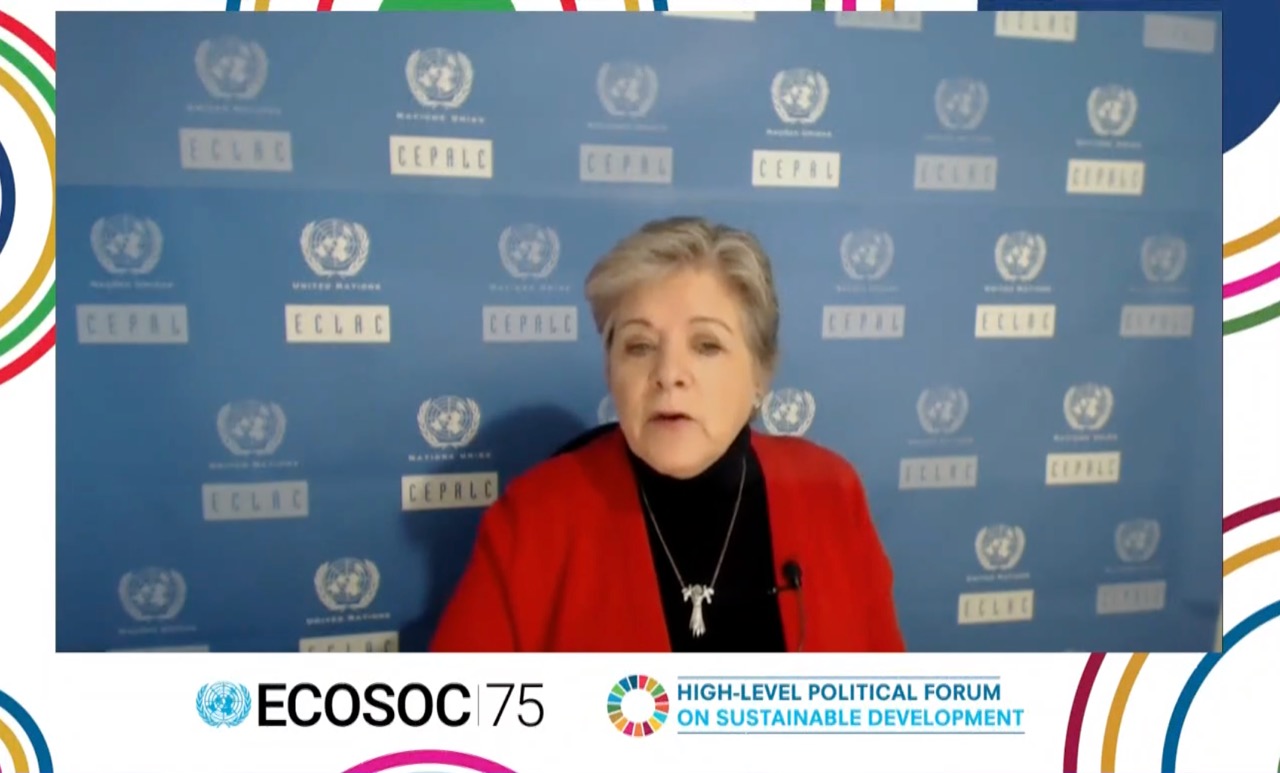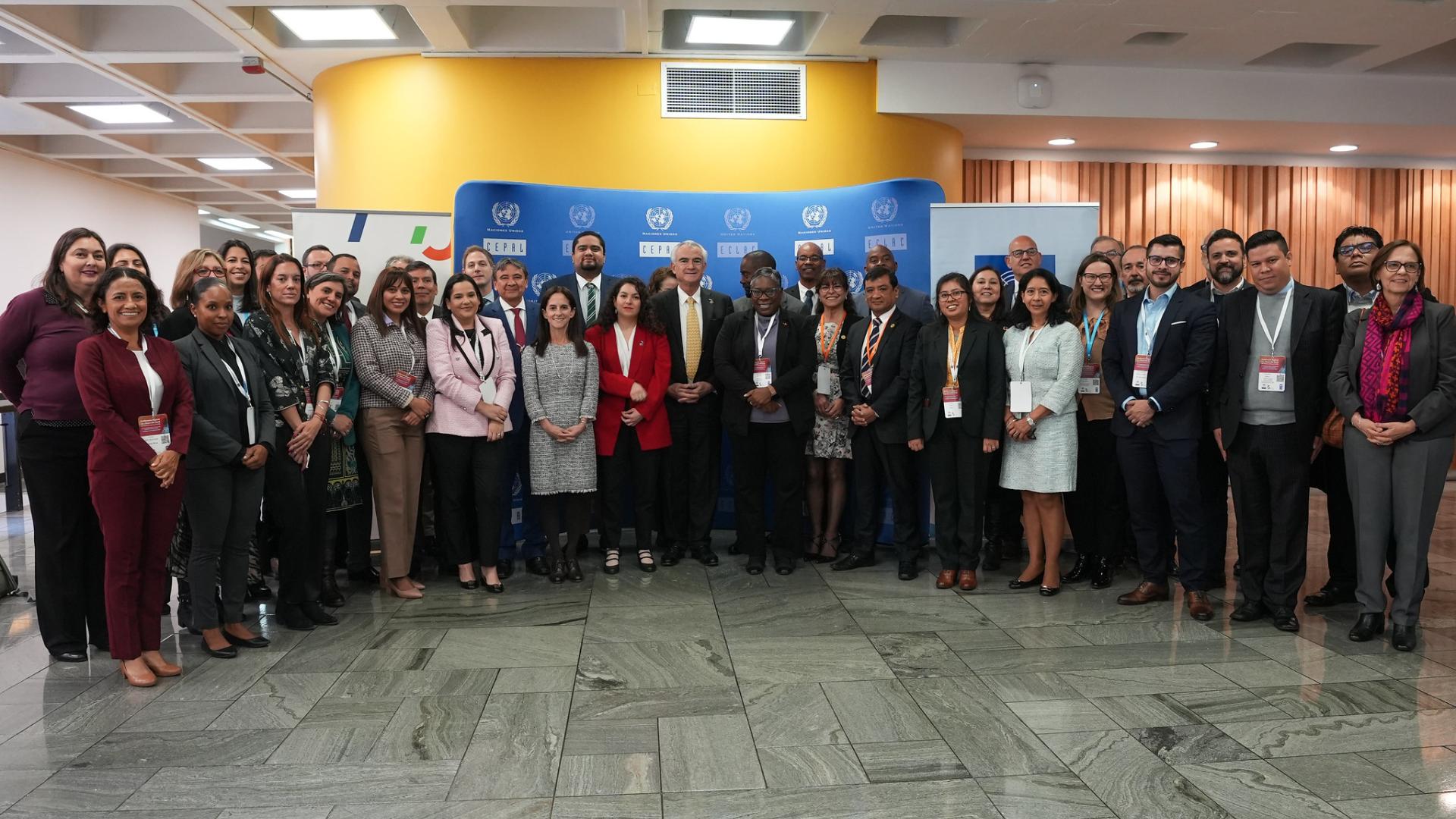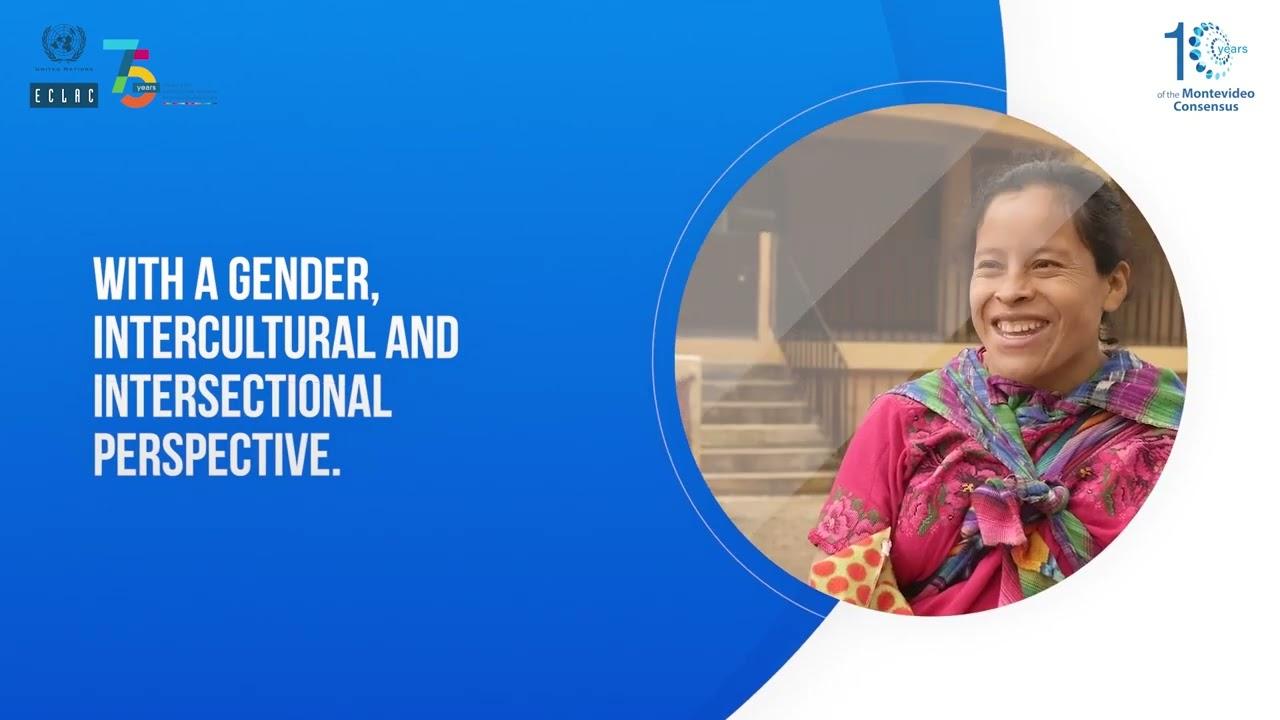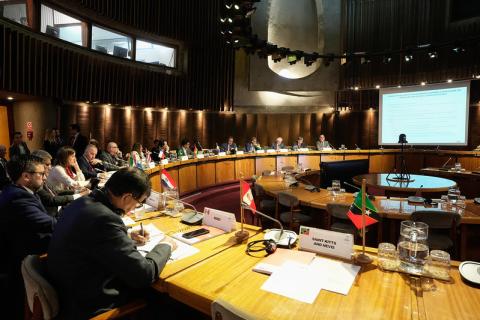Briefing note
The Executive Secretary of the Economic Commission for Latin America and the Caribbean (ECLAC), Alicia Bárcena, reaffirmed today that developing countries and especially middle-income countries (which comprise the majority of the region’s nations) need a liquidity boost and to participate actively in debt relief initiatives.
“The developed world is investing to achieve the 2030 Agenda’s Sustainable Development Goals (SDGs) and a green recovery, but developing countries are being left behind,” the Commission’s highest authority warned during a session entitled Investing in the SDGs, held in the framework of the United Nations High-level Political Forum 2021, which is taking place virtually this week.
Bárcena indicated that because of the crisis, we will not be able to return to the higher investment levels or activity levels that we had before the pandemic. “The world is divided in two: developed countries that are already vaccinated and are reopening their economies, and the developing world that does not have vaccines yet. We have islands of immunity in different parts of the world,” she said on the panel where she was joined by Joyce Chang, Managing Director and Chair of Global Research at JP Morgan; Anna Gelpern, Professor at Georgetown University in the United States; Nina Angelovska, global United Nations Conference on Trade and Development (UNCTAD) advocate for Women in eTrade and former Minister of Finance of North Macedonia; and Jason Rosario Braganza, Executive Director of the African Forum and Network on Debt and Development-AFRODAD (Civil Society Financing for Development Group).
In her remarks, ECLAC’s Executive Secretary indicated that Latin America and the Caribbean’s external debt rose by 10 percentage points and the region uses 59% of its earnings from goods and services exports to make debt service payments. For that reason, she emphasized that new initiatives are needed to address the financing of this serious problem, including the reallocation of the International Monetary Fund’s Special Drawing Rights (SDRs) from developed countries to developing countries and multilateral funds, such as the Fund to Alleviate COVID-19 Economics (FACE), proposed by the government of Costa Rica.
She also mentioned the Liquidity and Sustainability Financing Facility of the Economic Commission for Africa (ECA), hurricane clauses, initiatives linking debt reduction to investment in a green recovery, and debt-for-climate-adaptation swaps.
“The changes in the international financial architecture must include a multilateral sovereign debt restructuring mechanism to address obligations with private creditors, along with the creation of a multilateral credit rating agency that can act as a counterweight to the existing oligopoly in credit ratings,” she insisted.
She also reiterated that, with regard to middle-income countries, profound changes and new forms of cooperation are needed that would recognize the multidimensionality of development and avoid approaches based solely on GDP per capita. She stressed that in our region, a moratorium on debt payments should basically benefit Caribbean countries. “This is urgent. The Small Island Developing States (SIDS) of the Caribbean as well as Central America’s small countries are facing a very difficult situation,” she said.
“In addition, we must move towards more progressive taxation, just as the United States is doing. Orthodoxy is being questioned and it is necessary to head in that direction, while also combating tax evasion and avoidance and illicit financial flows. But to achieve that, we need a multilateral architecture. We can’t do it alone,” she stated.
In terms of investment, Alicia Bárcena underlined the urgency of closing the investment gap. She explained that the economic infrastructure gap in Latin America and the Caribbean represents 6% of GDP. “Our investment rate is 17% but in Europe it is 26% and in Asia-Pacific and in emerging economies, 33%. We have to increase investment, both public and private,” she emphasized.
Bárcena also noted that the role of multilateral, regional and national banks is essential for providing financing. “Rating agencies have downgraded the credit rating of the majority of the region’s countries, which makes credit even more expensive,” she indicated. “We have a window of opportunity with SDG bonds and green bonds. This is a good time for countries to move in that direction and invest in critical areas such as water, sanitation and electricity, to mention a few. If we want to achieve universal coverage in these areas, we would have to invest 2.6% of GDP annually. This is doable, it is possible,” she added.



